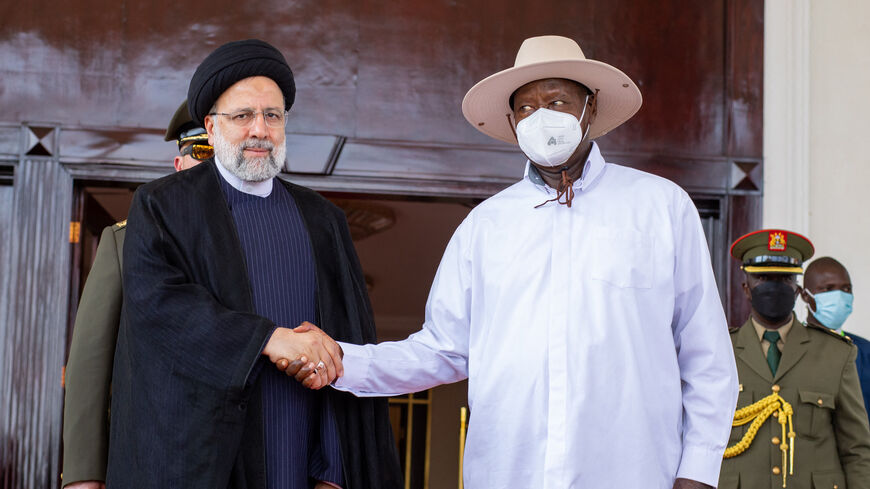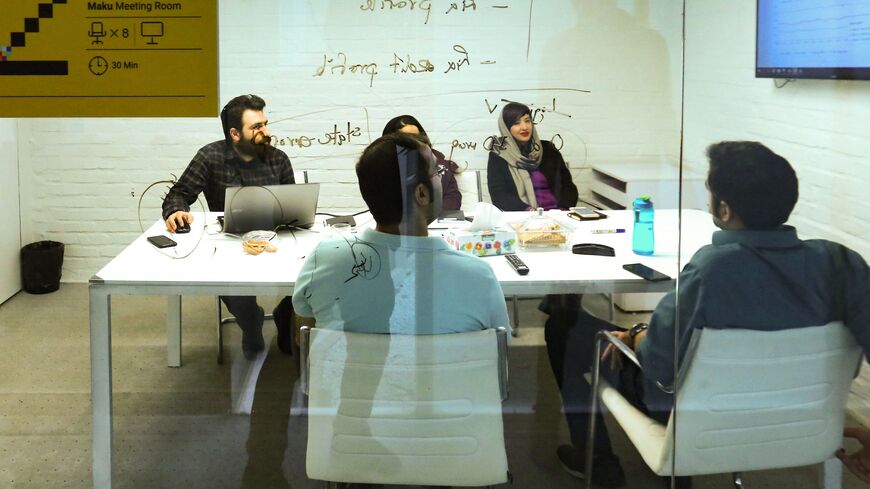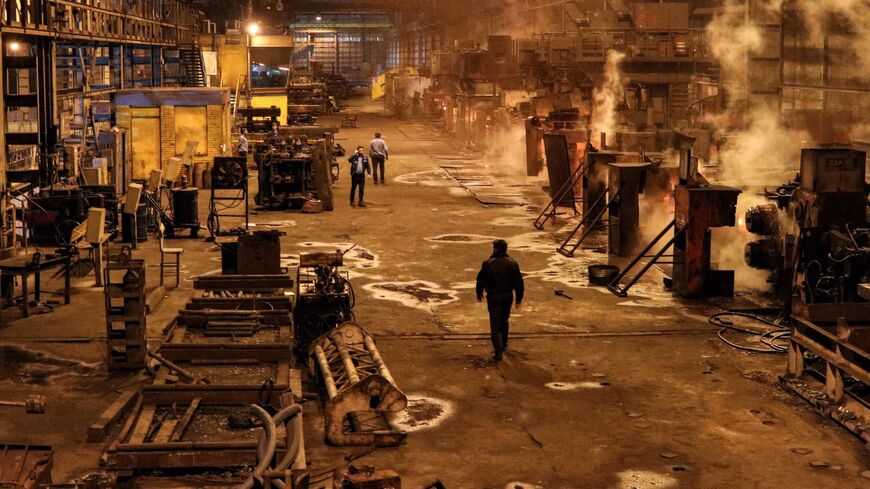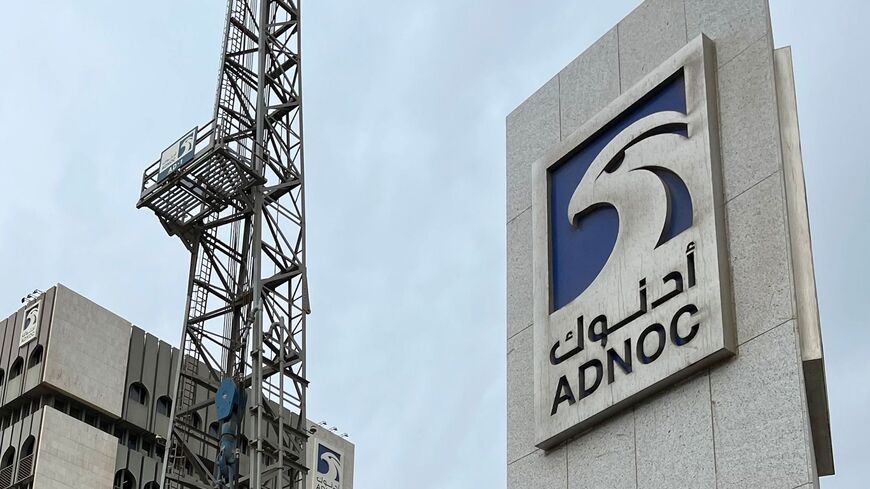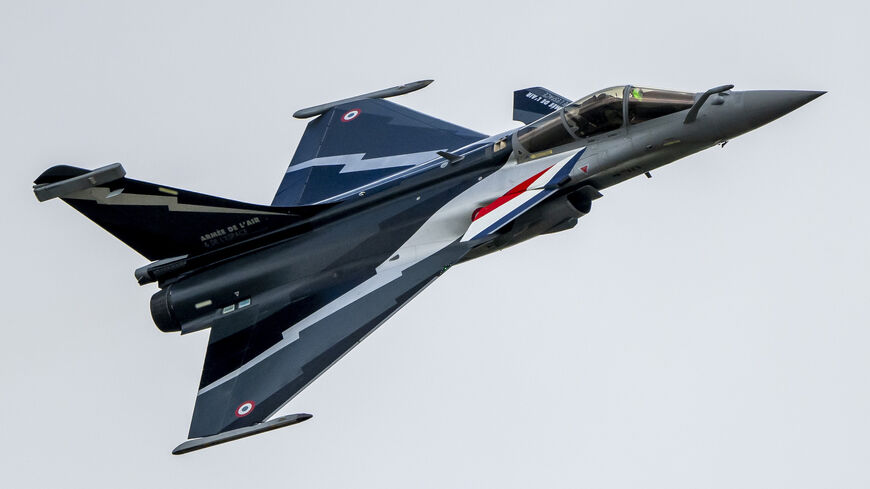Russian Gazprom's deal with Iran could prompt further cooperation
Al-Monitor PRO Members
Dr. Bijan Khajehpour
Managing Partner, Eurasian Nexus Partners, Vienna, Austria
July 28, 2022
The memorandum of understanding worth about $40 billion signed between Russia’s Gazprom and the National Iranian Oil Company (NIOC) last week is not going to lead to massive Russian investments in the Iranian gas sector, but it has the potential to create paths of cooperation and bring the two gas giants closer to each other.
-
Russia and Iran are the two top global gas reserve holders and also two of the top three gas producers in the world.
-
In the past, Russian oil and gas companies have not been heavily involved in the Iranian petroleum sector, partly because Tehran has historically preferred Western technologies to any other alternatives and partly due to the ongoing competition between the two entities.
-
Past experiences do not produce a promising outlook. In 2016, Gazprom Neft and NIOC reached an initial understanding for studies in a number of oilfields in Iran, but that cooperation did not lead to any investments.
-
The MoU that was signed on July 19 covers a number of areas of cooperation, including: Russian technological support for the “development of the Kish and North Pars gas fields, pressure enhancement of South Pars field and development of six oil fields, gas and product swaps, completion of LNG projects, and construction of gas export pipelines and other scientific and technological co-operation.”
-
Iranian sources have estimated the value of the mentioned projects at $40 billion. However, implementation remains to be seen. On the one side, Iranian officials tend to exaggerate the potential of their agreements and on the other, there will be many obstacles in the way of sizable Russian investments in NIOC projects.
-
The base of Iran’s petroleum sector is Western. Shifting some of the technological processes and equipment to Russian technology will be challenging, though possible.
-
Currently both Russia and Iran are sanctioned by Western governments, hence there is an increasing need on both sides to secure the other party’s cooperation in circumventing sanctions. As such, the drive to deepen the trade and investment relations will continue as long as the current sanctions are in place.
-
Iran-Russia bilateral trade doubled within two years from US$2 billion in 2019 to US$ 4billion in 2021. In other words, sanctions and geopolitical shifts have paved the way for commercial transactions that did not happen previously. The same could emerge in the petroleum sector.
Scenario 1: Realization of the Iranian desire to obtain Russian investments.
The Iranian petroleum sector is starved of new international investments and technology and would benefit from receiving Russian technology in a number of fields.
Evidently, as long as both countries remain subject to Western sanctions, they will have an incentive to cooperate.
Gazprom will have the technological capability to help Iran in some of the listed areas, but it won’t have the financial means to invest. Therefore, the Iranian narrative of the MoU won’t materialize.
Scenario 2: Materialization of the Russian narrative.
The Russian narrative is different. The Telegram channel of Gazprom describes the “possibilities of interaction” as follows: “the development of oil and gas fields in Iran, the implementation of trade operations with natural gas and petroleum products, the implementation of large-scale and low-tonnage LNG projects, the construction of main gas pipelines, scientific, technical and technological cooperation”.
For Russia, the objective of the agreement may be to put some of its idle engineering and operational capacities in the petroleum sector to good use.
Evidently, Iran’s oil and gas projects could benefit from Russian technology and equipment.
This scenario could materialize without major investments, through coordinated utilization of resources and capabilities. In fact, it has been reported that a number of oil tankers that were previously carrying Iranian crude have recently carried Russian oil for international clients.
Organizing product swaps, or even gas swaps, would actually make commercial sense. Since Iran’s gas-producing fields are located in the south, receiving some Russian gas or products in the population centers in the north would free up gas and products for export in the south of Iran. Both companies could benefit from such export potential.
Gazprom’s access to Russian technologies and heavy machinery could also address some of the shortcomings in Iranian petroleum projects.
Scenario 3: Non-materialization of the plans.
This MoU may end up just being a political maneuver at a time when both Moscow and Tehran wish to indicate that they are not isolated.
The fact that the MoU includes objectives that are non-feasible may be a sign of the political nature of the agreement. One such reference is the “completion of LNG projects.” But the fact is that Russia’s own LNG projects will face technological and operational obstacles due to EU sanctions.
This scenario may also materialize because technocratic decision-makers in the Iranian petroleum sector are likely to opt for Western solutions and minimize collaboration with Gazprom and other Russian entities.
Experience has shown that the reality in all Iranian affairs is somewhere between the Iranian narrative and the anti-Iranian propaganda. This is yet another example: This MoU will not lead to major Russian investments in the Iranian petroleum sector, but it will pave the way for new cooperation between the two oil and gas giants, especially in the fields of Russian engineering support as well as equipment in NIOC projects, product swaps, collaboration in trade and operational matters etc. How feasible these steps will be remains to be seen. While Iran’s political mindset has warmed up to closer ties with Russia, the country’s technocratic mindset is not as convinced that Russia will be an optimal solution for the petroleum sector. What can tip the current pro-Russian balance will be the restoration of the 2015 Iran deal.
Bijan Khajehpour is the managing partner at Eurasian Nexus Partners - eunepa.com - a Vienna-based international consulting firm. He also sits on the board of the Europe Middle East Research Group. He is considered an expert on geopolitics of energy and the Iranian economy and energy sector.
We're glad you're interested in this memo.
Memos are one of several features available only to PRO Expert members. Become a member to read the full memos and get access to all exclusive PRO content.

Already a Member? Sign in
The Middle East's Best Newsletters
Join over 50,000 readers who access our journalists dedicated newsletters, covering the top political, security, business and tech issues across the region each week.
Delivered straight to your inbox.
Free
What's included:
Free newsletters available:
- The Takeaway & Week in Review
- Middle East Minute (AM)
- Daily Briefing (PM)
- Business & Tech Briefing
- Security Briefing
- Gulf Briefing
- Israel Briefing
- Palestine Briefing
- Turkey Briefing
- Iraq Briefing
Premium Membership
Join the Middle East's most notable experts for premium memos, trend reports, live video Q&A, and intimate in-person events, each detailing exclusive insights on business and geopolitical trends shaping the region.
$25.00 / month
billed annually
$31.00 / month
billed monthly
What's included:
Memos - premium analytical writing: actionable insights on markets and geopolitics.
Live Video Q&A - Hear from our top journalists and regional experts.
Special Events - Intimate in-person events with business & political VIPs.
Trend Reports - Deep dive analysis on market updates.
We also offer team plans. Please send an email to pro.support@al-monitor.com and we'll onboard your team.
Already a Member? Sign in


